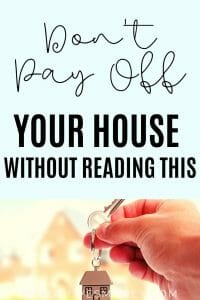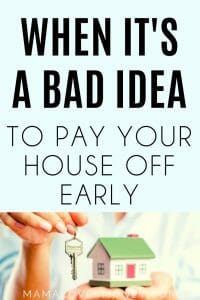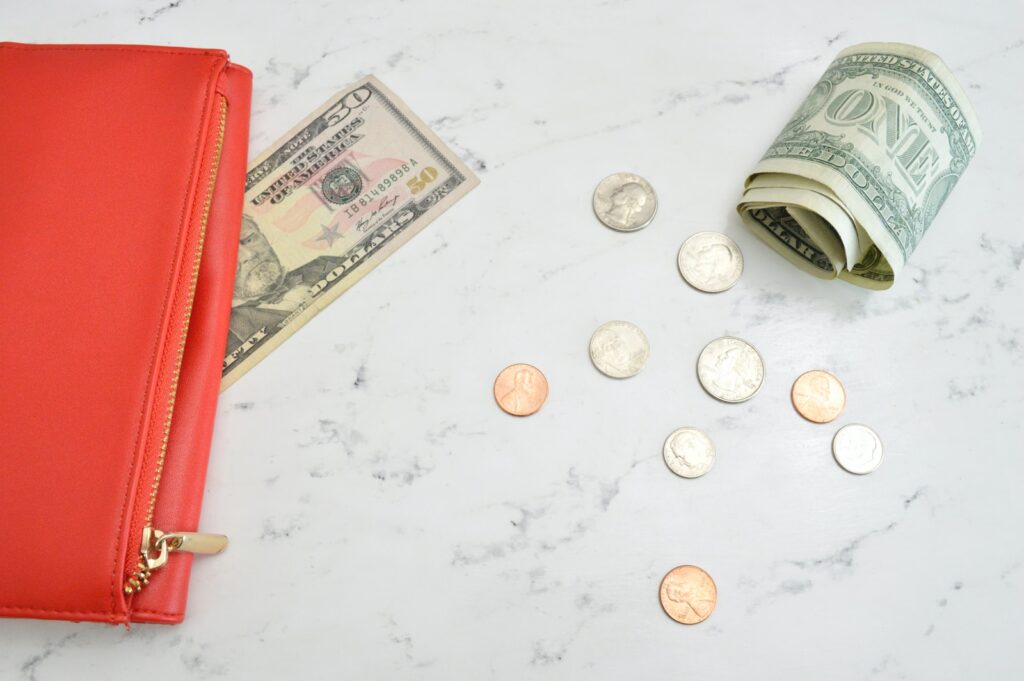6 Situations When It’s Not Best To Pay Off Mortgage Early

You might think that putting extra money towards your mortgage payment to eliminate your mortgage debt more quickly is a great idea (and guess what? It usually is!).
However, paying off your mortgage early isn’t always a good idea.
Each situation is unique, and no solution is the right choice for everyone.
Eliminating debt is a great idea, but it’s not always the best idea.
In this post we will be looking at 6 situations where paying off your mortgage isn’t always the best strategy.
Consider these reasons to avoid and not pay off mortgage early:
1 – Your mortgage has a prepayment penalty.
Ideally, you want to avoid a mortgage that has a penalty to paying it off early.
That being said: many mortgages DO have clauses that penalize the homeowner from paying off the mortgage early.
This period is usually only the first five years or so. The bank would prefer you keep the loan for the entire term.
- Examine your mortgage paperwork and see if such a clause is part of your loan contract.
2 – You consistently make a better return on your investments.
If your mortgage is at 6% and you’re making 10% in the market, you might want to put your extra money towards additional investments.
You’re coming out 4% ahead with this strategy. Paying off your mortgage might not be the best investment you can make.
Do the math and then decide.
3 – Your emergency fund is inadequate.
A financial emergency can cost a lot more than the money you’ll save by paying extra toward your mortgage.
Everyone hits a rough spot eventually. It’s just a matter of time. Are you able to handle a financial emergency adequately?
- Build a cushion of at least several months’ worth of living expenses before applying extra funds to your mortgage principal.
- Consider how much credit card interest will cost you if you don’t have an emergency fund. In some circumstances, a real financial challenge could put your home at risk. Build up your reserves before paying extra on your mortgage.
4 – You currently have high-interest debt.
Does it make more sense to pay down your 17% credit card or your 6% mortgage?
The best investment opportunity you’ll ever have is paying down your high-interest debt.
Credit card debt is insidious.
The minimum payments are very reasonable, but very costly over time. See if you can consolidate your debts first.
- Paying off a mortgage early provides peace-of-mind and security, but it’s rarely a good investment in terms of return.
- Any debt with a higher interest rate than your mortgage should be addressed first.
5 – The tax advantages outweigh the benefits of paying off your mortgage early.
Early in the payback process, most of the mortgage payment consists of interest. This interest is tax deductible for investment properties.
- Is the tax break worth carrying debt? Also, consider the other ways the money could be put to work.
- Some homeowners might prefer to have this tax break in lieu of paying off the mortgage early.
- Think about your overall tax situation. How much will your tax burden change if you don’t have a mortgage payment? Are you prepared to pay the extra taxes?
6 – You’ve failed to save adequately for retirement.
It might be smarter to put your extra cash toward your retirement instead of toward your home. Many couples decide to pay off their home and then worry about retirement.
But there’s no telling what the future may bring. Long-term unemployment or death may derail a plan like this.
- Be sure you’re contributing regularly to your retirement before throwing extra payments at your house.
Paying off your mortgage and knowing that your house belongs to you instead of the bank can provide security and comfort.
However, paying off your mortgage early isn’t always your best option.
Examine your situation and make a decision that best addresses your needs.
If you enjoyed this post, please feel free to share it!








